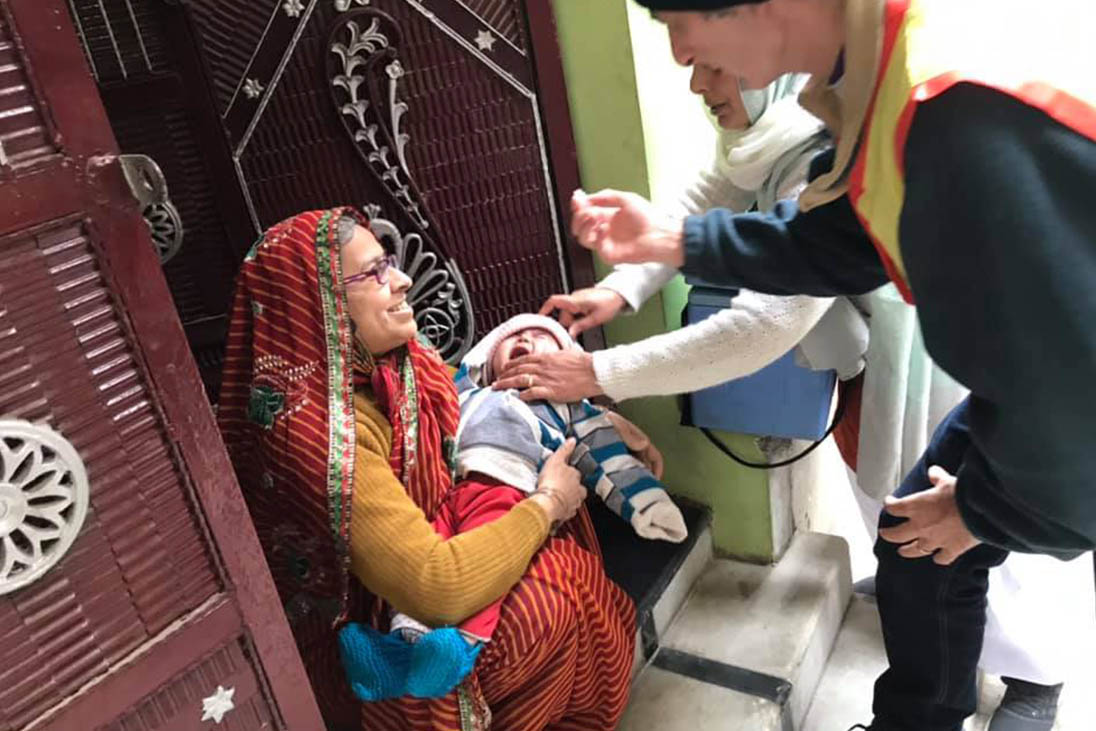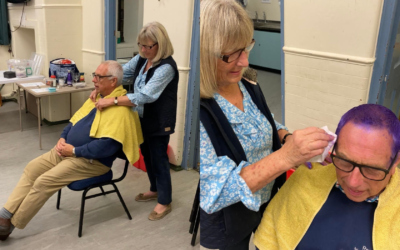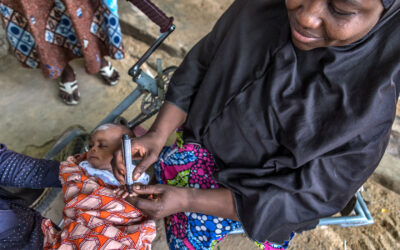The day after millions of Indian children were vaccinated against polio, Rotarians from around the world worked with health visitors on door-to-door visits to immunise those children who initially missed out.
There are two teams of British Rotarians currently working with medical teams in the capital Delhi and Amritsar.
The team in Amritsar, just 20 miles from the Pakistan border, includes Rotarians from Bradford, Watford, Sidmouth, Brigg, and Northallerton Mowbray, and also includes the District Governor for 1040 (Yorkshire/Humberside), Dr Manoj Joshi.
On Saturday, they joined a well-organised rally in the Punjabi town with more than 500 children from the Bhavan Public School, marching through the streets carrying placards and banners they had made.
These carried inspiring messages and slogans including “Kick the polio out of India” urging families to bring their infants to the immunisation stations for oral vaccine.
“The rally attracted a lot of interest,” said Dr Joshi.
On Sunday, India began its mass immunisation programme of around 170 million children under the age of five to protect them and the country against polio. India has officially been declared polio-free since 2014.


In Najafgarh, the task for the 73 teams was to visit 40,000 households, some in outlying areas.
In Amritsar, the UK team in Amritsar separated into three groups, joining with trainee nurses, fellow Rotarians and volunteers to administer polio drops to around 1,000 children. The team in Delhi focussed its efforts in the suburb of Najafgarh.
And then on Monday, across India, there began the first day of a week-long series of house-to-house visits by health teams to vaccinate those children who did not attend the health centres at the weekend.
In Najafgarh, the task for the 73 teams was to visit 40,000 households, some in outlying areas.
Dr Dinesh Chawla, who leads the public health teams in the town, explained that plenty of pre-publicity through posters, in newspapers, on television, radio and social media, as well as loud speaker announcements around Najafgarh had warned residents of the visits.
The health workers use the latest census to know where to track down the under-fives in this Delhi suburb who are yet to receive this most precious of vaccines.
Neelam Devi and Sudesh Kumani have been doing this job for more than 20 years, and know the intricate geography of Najafgarh and its community extremely well.
Polio is a crippling disease, and those with polio can become a burden on their family. We have to ensure India remains polio-free.”
Armed with the latest census and their own formidable local knowledge, Neelam and Sudesh dispensed polio vaccine, which was carried around in cool boxes, to those on their list who have not been immunised.
Each child then had a fingernail stained with a purple marker pen to record the vaccination.
Only one in 1,000 parents totally refuse the polio drops, they said, so then an appointment is then made for the family at the hospital.
Over the border in some rural parts of Pakistan, health workers have been shot and killed trying to engage with community for their children to have the vaccine. In India, the community openly welcomes the ladies.
Dr Chawla added: “There is no danger to our teams who come from the communities they work in and they are well known to everyone. They not only help the families with giving the polio drops, but other health advice too.
“We have been doing this since 1999, so by now everyone knows what to expect.”
One young couple and their grandmother invited the health workers and a trailing group of Rotarians for Indian elevenses, with very sweet chai and tasty snacks.
“We don’t miss any children,” said Neelam, who revealed how they also offer general medical advice on their rounds tackling everything from breast feeding to mental health.
“We know the families well. They like to see us.”
It’s formidable and important work, for which the ladies are paid an extra 500 rupees (£5) a month on top of their normal salary for this critical task on polio’s coal face.
Dr Chawla said the biggest challenge facing the polio teams was complacency.
He said: “People have become relaxed. They know we no longer have polio in India so they ask why are we still doing this? We have to teach them and explain why these vaccinations are necessary.
“Polio is a crippling disease, and those with polio can become a burden on their family. We have to ensure India remains polio-free.”










